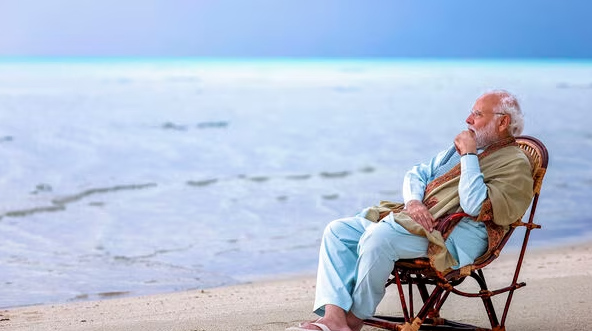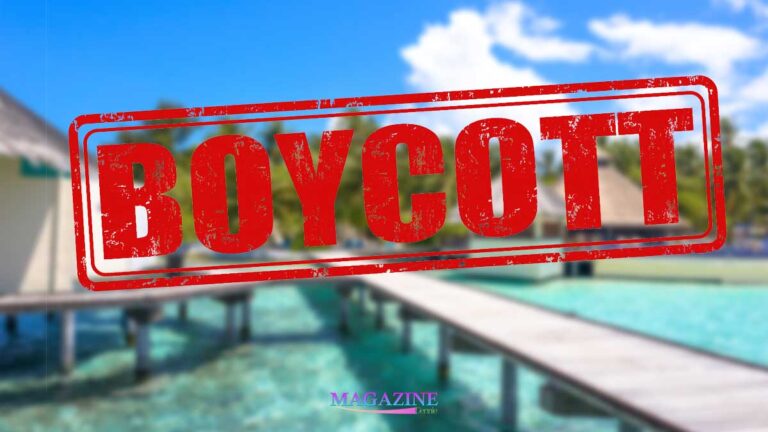Maldives Minister Tweet
The Maldives has recently been embroiled in a diplomatic controversy following derogatory tweets made by Maldivian officials about Indian Prime Minister Narendra Modi. The tweets, which were posted by former Foreign Minister Abdulla Shahid and Deputy Minister Abdulla Mahzoom Majid, sparked a social media uproar and led to the suspension of three Maldivian ministers.
The controversy also led to strained ties between India and the Maldives, with the Maldivian government issuing a statement disassociating itself from the remarks and emphasizing the importance of exercising freedom of expression in a responsible manner. The incident has highlighted the delicate nature of diplomatic relations in the region and the potential impact of social media on international affairs.
Table of Contents
Why did India boycott the Maldives?

India’s boycott of the Maldives stemmed from derogatory comments made by Maldivian officials about Indian Prime Minister Narendra Modi. The incident led to a significant digital movement, with many Indian social media users calling for a boycott of the Maldives.
The Confederation of All India Traders (CAIT) and the Indian Chamber of Commerce urged Indian exporters, traders, and travel agencies to boycott business and tourism activities with the Maldives in protest against the offensive remarks. This led to the suspension of flight bookings to the Maldives by one of India’s largest travel platforms.
The boycott was also fueled by tensions between India and the Maldives, with the Maldivian government taking action by suspending the officials responsible for the offensive comments. As a result, there was a growing trend among Indian social media users to promote domestic tourist destinations, particularly the Lakshadweep and Andaman & Nicobar Islands, as alternatives to the Maldives.
While there wasn’t an official “boycott” declared by the Indian government, there was a significant public campaign to avoid travel to the Maldives in late 2023, driven by:
Derogatory Remarks by Maldivian Leaders: Several Maldivian politicians, including a minister and an MP, made offensive and racist remarks towards Prime Minister Narendra Modi and India after his visit to Lakshadweep, another Indian island chain. These comments triggered widespread anger and condemnation in India.
Social Media Outrage: The hashtag #BoycottMaldives trended on Indian social media, with many netizens expressing their displeasure and advocating for choosing alternative destinations. Celebrities also joined the call, promoting Indian tourism as a response.
Economic Impact: As tourism makes up a significant portion of the Maldivian economy, the boycott campaign threatened potential financial losses. Some Indian organizations, like the Confederation of All India Traders, even called for a trade boycott.
Diplomatic Efforts: However, it’s important to note that the Indian government maintained diplomatic channels with Maldives and did not issue any formal boycott calls. Officials urged restraint and emphasized the importance of good relations between the two countries.
Current Situation: The situation has partially calmed down, with the offending tweets deleted and apologies issued by some Maldivian figures. While the #BoycottMaldives movement has lost momentum, it’s likely that some Indian tourists may still remain hesitant to visit the Maldives for the time being.
Conclusion: While not an official government action, the Indian public’s outrage over the offensive remarks triggered a significant call for boycotting travel to the Maldives. The impact remains to be seen and depends on various factors, including diplomatic efforts and public sentiment.
It’s important to remember that the situation is complex and constantly evolving. This information is based on the current understanding as of January 8, 2024. It’s always advisable to stay updated on developments and verify information through reliable sources before making travel decisions.
See also : 72 Days in Hell: The True Story of the “Society of the Snow” Survivors
Maldives President
Mohamed Muizzu is the current President of the Maldives, having assumed office on November 17, 2023, after winning the presidential election. He succeeded Ibrahim Mohamed Solih, who was the incumbent president. Muizzu is a member of the Progressive Party of Maldives (PPM) and was selected for his party’s nomination after former president Abdulla Yameen was jailed for serious corruption charges. Prior to his presidency, Muizzu served as the Mayor of Malé and as the Minister of Housing and Infrastructure. His election followed a narrow presidential race between him and Solih.
Maldives Religion
The Maldives is an Islamic state, and Islam is the official state religion. The constitution, instituted in 2008, designates Sunni Islam as the state religion. It requires citizens to be Muslim, and public office holders, including the President, are required to be followers of Sunni Islam. The government of the Maldives has also stated that the country is 100% Muslim, with independent figures showing that the country is 98.69% Muslim, 0.65% Buddhist, 0.29% Christian, and 0.29% Hindu.
The constitution and government regulations are based on Islamic law, and all residents are required to teach their children the Muslim faith. Non-Muslim citizens of other nations can practice their faith only in private and are barred from proselytizing. The majority of the population in the Maldives practices Sunni Islam, and the government maintains and funds the majority of the mosques in the country.
The Maldives’ family law complies with Shari’a law, and due to this, women are not allowed to marry non-Muslim foreigners, but men can marry non-Muslim foreigners. The Maldives is an independent island country in the north-central Indian Ocean, consisting of about 1,200 low-lying small coral islands and sandbanks, with a population of approximately 457,900 as of 2023.
Maldives Population
The current population of the Maldives is approximately 519,385 as of January 8, 2024, based on the latest United Nations data. The population is diverse, with Maldivians making up the majority of the population, as well as expatriate workers from various countries. The capital and largest city of the Maldives is Malé, with an estimated population of 63,000. The population has grown significantly since the country’s independence in 1968, with a fertility rate that has declined from 6.4 births per woman in 1990 to just 2.8 in 2000. The Maldives is the 11th most densely populated country in the world, with less than 300 square kilometers of land.
FAQ.
Which country is the Maldives in?
The Maldives is an independent island country located in the north-central Indian Ocean. It lies southwest of Sri Lanka and India, about 750 kilometers (470 miles) from the Asian continent’s mainland. The Maldives is an archipelagic state and country in South Asia, and it is made up of a chain of about 1,200 small coral islands and sandbanks, with only some 200 of them being inhabited.
The capital and largest city of the Maldives is Malé, which is located in the Central Atoll. The Maldives is known for its stunning natural beauty, with over 26 naturally-formed atolls, 200 locally inhabited islands, and thousands of other coral islands and sandbanks. The country is also famous for its top-end tourist market, as the economy revolves around tourism, and many islands have been developed for this purpose.
Why is Maldives so famous?
The Maldives is famous for its stunning natural beauty, including its pristine beaches, turquoise waters, and coral reefs. The country is an archipelagic state and is made up of a chain of about 1,200 small coral islands and sandbanks, with only some 200 of them being inhabited. The Maldives is also known for its top-end tourist market, as the economy revolves around tourism, and many islands have been developed for this purpose.
The country offers a perfectly blissful vacation to travelers, with lush green forested terrains, white-sandy beaches, and bluest of waters. The country is also famous for its vibrant culture, including the popular Maldivian folk dance, Bodu Beru, and its delicious cuisine, which includes dishes like Mas Kashi dried fish with mango.
What is the cost to visit Maldives?
The cost of visiting the Maldives varies depending on factors such as the type of accommodation, activities, and the time of year. Here’s a breakdown of the estimated costs for a trip to the Maldives:
- Airfare: Round-trip flights from major cities such as New York, London, or Sydney can range from $500 to $1500 or more per person. Some resorts may offer packages that include flights, which can be a convenient and potentially cost-effective option.
- Accommodation: Budget-friendly options like guesthouses or hostels may be available starting at around $50 per night. Overwater bungalows, a popular choice for honeymooners, can cost $700+ per night. Prices vary depending on the resort island and the type of room.
- Food: The cost of food can vary depending on the type of restaurant and the quality of meals. Economy class meals can cost from $15 to $30 per day, while mid-range options can range from $30 to $90 per day, and luxury class meals can cost over $90 per day.
- Activities and Attractions: The cost of activities and attractions in the Maldives can vary widely. For example, snorkeling excursions can cost around $40, while island hopping and sunset cruises can cost more than $1003. Scuba diving, dolphin watching, and other water sports can also come with additional costs.
- Tours and Transfers: You should budget around $500 on tours and activities in the Maldives as an absolute minimum3. The cost of transportation between islands, such as speedboats or seaplanes, can also vary depending on the distance and the type of transfer.
- Tips and Miscellaneous Expenses: Tips for services like room cleaning, meals, and other hotel services can add to the overall cost of your trip. Additionally, incidental expenses like souvenirs, laundry, and other personal expenses should be considered.
Overall, the cost of a trip to the Maldives can vary greatly depending on the type of accommodation, activities, and other factors.



